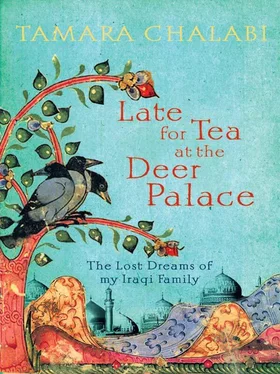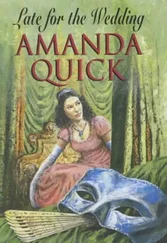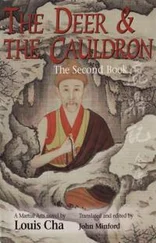All of my companions, including my father, had their own personal memories of Baghdad. Like little children, they sparked with enthusiasm and anticipation when we entered the city in which they had been born. Many kissed the ground in tears before rising hastily, anxious to find their relatives and loved ones. I had none to find here. I stood by, silently searching their faces for an emotion I could recognize. None came. I felt cold and detached. This place was as foreign to me as any other, and I had no memories to draw upon to make me feel otherwise. What came instead was an image of Beirut, my birthplace. I remembered clearly the feelings of comfort, safety and warmth I always had deep inside whenever I was on a plane coming in to land in Beirut, the sea shimmering against the horizon. As much as I wanted to push that image away and connect with the ground beneath my feet in Baghdad, I couldn’t.
It quickly became clear on our arrival that the promised ‘liberation’ had not happened. The sense of excitement and expectation with which I had travelled was replaced by a deep foreboding as I entered a shattered world. I went to my grandparents’ house in Baghdad. Forty-five years had passed since they had been forced to flee the country. A big, solid, four-storey home, it was designed in the Bauhaus style and built in the late 1940s. The clean lines of the windows, the large rooms and elegant staircases were all suggestive of that era’s faith in a better future. The place smelt the same as my grandparents’ subsequent homes in Britain, infused with an aroma of rice and something indefinable. In London, they had recreated what they could of all that was soothing and familiar to them, building altars to their old life through the objects that had followed them into exile – their photographs, silver and precious carpets. However, they had merely been repeating a process they had already been through during an earlier period of forced expatriation, in Beirut, before the Lebanese Civil War drove them on once more.
I knew this house from the stories of other relatives, stories which had been told to me over and over again, but I could never have imagined the sense of emptiness that echoed down the long corridors and through the airy rooms. I tried to remember the rhythms of my grandmother’s deep voice as she spoke of her former home when I was a little girl: ‘You can’t imagine the wonderful life we had in Baghdad, Tamara. I was like a queen …’
A life-size stone statue of a deer stood in the withered garden outside the house. I knew that my grandfather Hadi had loved that deer as much as his father before him. Someone had beheaded it. My first impression was that the deer looked almost offensive among the unkempt grounds, as it suggested a more carefree time when the people and the country had been very different. It was now a dirty ivory colour, yet there remained a certain sensuality about it as it stood proud, the fluidity of its hind muscles elegantly carved. Even the amputated head lying on the ground was playful. Its large dark eyes were well defined and penetrating, their gaze frozen in time.
My journey to Iraq had really begun in my head many years earlier, in my grandparents’ house in Beirut. It was 1981. I was seven years old. A man’s voice, sonorous and beautiful, cut across a crowded room, singing about a land I did not know.
A man fired an arrow that slayed the child.
Oh my child, they killed a child
Woe is me, woe is me …
Although the singer was tucked away in a corner, his voice held the room captive. I could not understand why the audience wept as he sang about a thirsty child killed in his father’s arms. I had never heard anything like it before. It disturbed my sense of the established routine and quiet of my grandparents’ house.
I crawled through the legs of the grieving adults towards the familiar figure of my uncle Hassan. He sat listening intently, inscrutable in the dark glasses he wore to mask his blindness. I squeezed myself in next to him, watching as he tapped his knee with the palm of his hand in time to the song. I asked him why everyone was crying. He told me that it was in memory of Imam Hussein.
‘Did he die today?’ I asked.
‘No, no, Tamoura,’ he said fondly, calling me by the nickname he had given me. ‘He died a long time ago, before any of us were born.’
‘So why are you still crying?’
He explained that the singer was commemorating the Battle of Karbala, when Imam Hussein, the Prophet’s grandson, was confronted by Caliph Yazid’s forces of 4,000 men. A very long time ago Hussein had gone to war, taking his family along, and a small army of only seventy-two men, many of whom also went into battle with their women and children. When the armies clashed on the banks of the Euphrates River, in the month of Muharam, Hussein was defeated. He, his infant son and his men were slain and the women and children taken into captivity.
My uncle smiled sadly. He said that time did not lessen the sense of tragedy of an act that had the power to haunt people forever. He told me that Hussein had been killed by an evil man for the sake of haqq – truth and justice.
‘But if it was so long ago, then why are you still crying?’ I persisted.
Hassan told me that during the first ten days of Muharam, which were called Ashura, this event and its consequences were remembered. My grandfather Hadi used to host a recital in Baghdad on the last day of Ashura, and hundreds of people would go to his home to commemorate it. He added that Ashura was especially painful for our family, because it reminded us that we had been deprived of our own country.
‘We are foreigners everywhere, and we have lost so much,’ he said. He touched me lightly on the shoulder. ‘You should know these things. They are part of your history, of who you are.’ I hated what he said. Surely I belonged exactly where I was? My uncle sensed my discomfort. ‘Do you deny your roots?’ he asked, smiling. I didn’t understand what he meant; he explained that he, my father, my grandfather and grandmother had once had another country, but that they had lost it. Their homeland was my home as well. I scowled. Lebanon was my country and my mother’s country, Beirut the city where I had been born. I was not a foreigner here.
A slice of chocolate cake soon made me forget what my uncle had said, but on some level I dimly perceived that the grievance captured in the words of the song was the same as that which made my father’s family weep in their exile. They were waiting to return to their homeland. Their lost country maintained a hold over them, the legacy of an inheritance centuries old.
The earliest indications of a settled civilization in the world are found in the region that is known today as Iraq. Between the fifth and fourth millennia BCE, lower Tigris and Euphrates basin cities such as Ur, Uruk and Larsa emerged and stratified societies developed within them. Mesopotamia – as the Greeks referred to the region between the two rivers – covered roughly the central southern part of what is now Iraq. Mesopotamia was also the term used to describe the provinces of the Ottoman Empire that belonged to this region. The ancient history of Mesopotamia is now lost to us, but it was mythologized by the Sumerians in epics such as the story of Gilgamesh, which was first written down in around 2000 BCE and which is a story of kingship and heroism that has informed and inspired people ever since.
The region that corresponds to the north of modern-day Iraq was the birthplace of the world’s first empire. The Assyrians, descendants of the Akkadians who settled in the land of Sumer, engaged in what amounted to a conquest of the known world of their time – from Persia to Egypt. The Sumerians, Akkadians, Assyrians and later the Babylonians created what are, in effect, the foundations of civilization today. Our seven-day week, sixty-minute hour and much of our understanding of the constellation of the skies are the direct legacies of this defining period in human history. The mythologies of a large cast of gods and goddesses survived from this period too: Anu, the heaven-god of Mesopotamia, was the equivalent of Greek Zeus, while Ishtar or Inana was the goddess of love, war and fertility, and the precursor of Egyptian Isis.
Читать дальше












